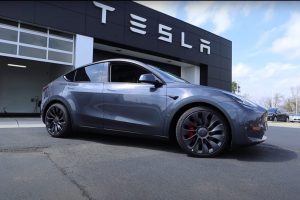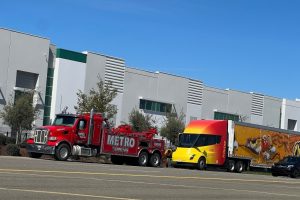In late February, reports emerged stating that Japanese carmaker Toyota had conducted a teardown of the Tesla Model Y, one of the electric vehicle maker’s best-selling cars. The veteran automaker was reportedly quite shocked at the Model Y, with one executive stating that the all-electric crossover was a “work of art.”
This was partly due to Tesla’s constant innovations that have been implemented with the Model Y. The vehicle, after all, may look understated and unassuming on the surface, but underneath the hood, the Model Y is a tour-de-force of technology and disruptive manufacturing processes.
Citing four people reportedly familiar with the matter, Reuters recently noted that Toyota is planning a factory overhaul as part of its efforts to develop a new, dedicated platform for EVs. The publication’s sources also noted that Toyota recognizes that it needs to match Tesla’s design and manufacturing innovations if it wants to drive down production costs and develop a high-margin electric vehicle business.
Koji Sato, Toyota’s new CEO, may confirm the development of a new EV architecture at his first briefing as the company’s chief executive on Friday, the publication’s sources noted. However, it is unclear whether the plan has been formally approved. If it does get implemented, however, the new EV platform would be the result of a comprehensive review of the company’s electric vehicle strategy that was undertaken last year.
Toyota has caught quite a bit of flak for its slow adoption of battery electric cars. The company’s current production architecture, the e-TNGA system that was launched in 2019, produces EVs alongside gasoline cars and hybrids on the same assembly line. Such a system is not ineffective, but it lacks the cost savings Tesla was able to achieve through its manufacturing innovations. Thanks in no small part to these innovations and cost optimizations, Tesla is estimated to have made nearly 8x the profit per car as Toyota for the third quarter.
While Toyota has placed its bet on hybrids and alternative systems like hydrogen fuel cells, the automaker has seen the global demand for electric cars outpace its modest estimates, thanks in no small part to the strong sales of vehicles like the Model Y crossover. Unfortunately for Toyota, its battery electric crossover, the bZ4X, faced an early recall over loose wheels and had limited sales.
Toyota’s lack of electric vehicles seems to be affecting the company’s sales already. In the first quarter of 2023, Toyota’s US sales fell by nearly 9%, while General Motors experienced an 18% boost, partly driven by higher demand for EVs from fleet and commercial customers. This was despite GM only selling over 20,000 electric vehicles during that period, substantially less than Tesla. Data from S&P Global Mobility also suggest that Toyota and Honda have seen many customers switch to electric vehicles.
Katherine Garcia, director of the Clean Transportation for All Campaign at the Sierra Club, emphasized that if Toyota doesn’t focus more on EVs under CEO Koji Sato, the company risks “leaving money on the table” as EV growth surges across the US. Christopher Richter, an analyst at CLSA, also highlighted that Toyota needs to prioritize EVs over hybrids in its future production.
“Some of the statements that came out of Toyota when Akio Toyoda was CEO sort of made it sound kind of like hybrids are going to be there forever. No, it’s your standby. It’s your hedge. EVs have to be first,” Richter said.





